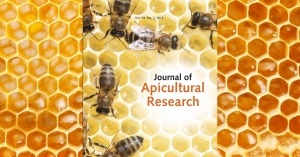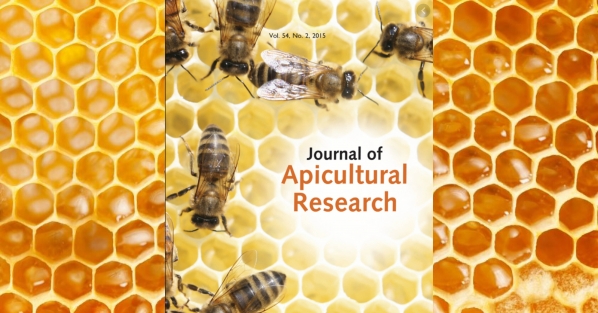A century of discovery: Mining 100 years of honey, is creating a buzz having been recently included in the Journal of Apicultural Research.
Researchers Edgar E. Hassler, Joseph A. Cazier, Brandon Hopkins, James T. Wilkes, Kiefer Smith and Max Rünzel, who are affiliated with Appalachian State University's Center for Analytics Research and Education (CARE), utilized text mining to discover recurring themes from more than 30,000 peer reviewed journals from the last 100 years.
Honey bees have been an important area of research and study going back at least to the days of Aristotle in the third century B.C. The amount and breadth of this research have been steadily increasing over time, especially during the modern age with the growing importance of honey bees to our society in agriculture, economics, food, medicine, and even computing technology. Even for those familiar with bees and scientific literature, the volume and diversity of information can be daunting. The aim of this study is to survey the last 100 years of available scientific research related to or inspired by honey bees and show its evolution, progression, and diversification through time by using text mining to conduct both a historical and topical analysis on the last 100 years of this research. This process shows how this research has grown and evolved over time while informing researchers of the depth, breadth, and dynamic nature of the research. This paper presents the analysis of the titles and abstracts of the 30,355 unique peer reviewed journal articles we identified related to honey bees and beekeeping and articulates relevant topics and changes over 100 years of bee research analyzed in ten time periods from 1917 through 2016. This study shows how honey bee research has evolved from a sub-field of other disciplines to a strong discipline in its own right and how it has further been enriched by contributions from other sciences.
"This article that was released yesterday is starting to get a fair amount of attention," said Cazier, CARE's executive director. "I've already been asked about translating an outreach version into another language."
About the Center for Analytics Research and Education (CARE)
The Center for Analytics Research and Education (CARE) at Appalachian State University utilizes analytics to promote positive behavioral change in the world and do Analytics for Good. Housed in the Walker College of Business, the center enhances the reputation of the university by seeking out projects that have a positive impact on society and avoiding those that would have a negative impact. Big data is inherently interdisciplinary, and CARE faculty work to further research in the areas of sustainability, education, health and wellness, human resource science, and economic development, among others. Learn more at care.appstate.edu.

